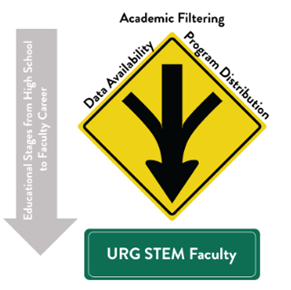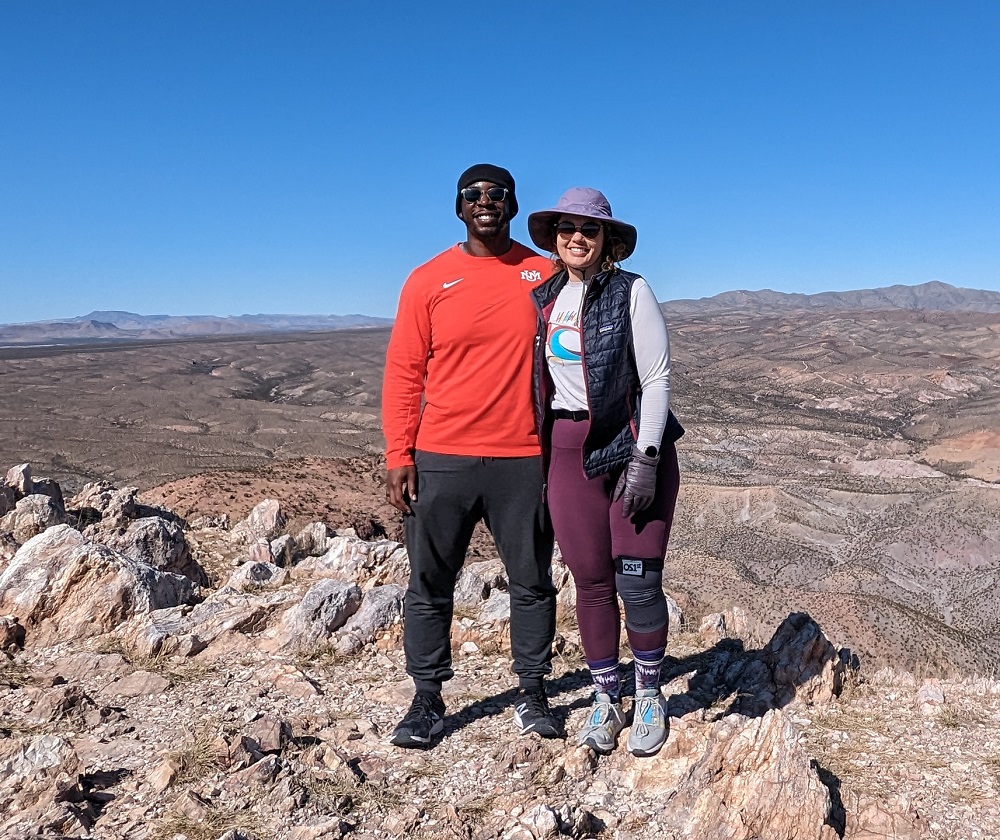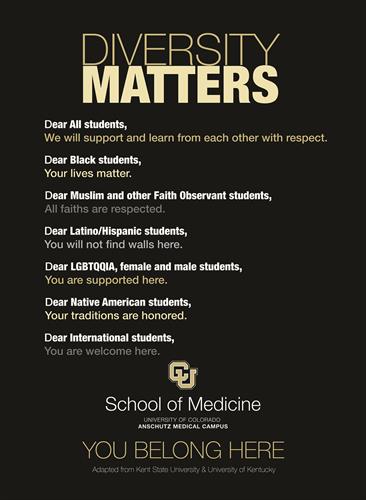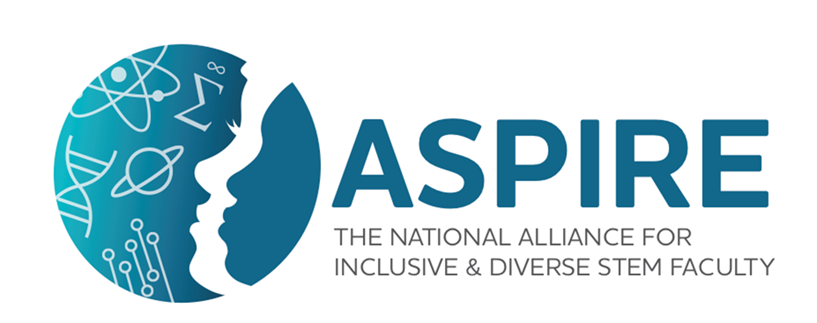About the CU PM&R Diversity, Equity, and Inclusion Committee
Welcome to the Diversity, Equity, and Inclusion webpage for the Department of Physical Medicine & Rehabilitation at the University of Colorado Anschutz Medical Campus.
CU PM&R is committed to promoting diversity, equity, and inclusion in all aspects of our clinical, academic, and service work. We recognize that diversity encompasses differences in race, ethnicity, gender, sexual orientation, socio-economic status, age, physical abilities, religious beliefs, and political beliefs.
In alignment with the American Academy of Physical Medicine and Rehabilitation's (AAPM&R) Diversity and Inclusion Statement, we strive to create a culture that is inclusive and respectful of all individuals, where all members feel valued, respected, and supported. This includes not just promoting diversity but also actively working to eliminate discrimination, bias, and disparities in our department.
Our department also follows the University of Colorado School of Medicine Diversity Plan, which aims to increase the diversity of the medical student body, faculty, and staff, and to foster an inclusive environment where all members feel respected and valued.
Our CU PM&R Diversity, Equity, and Inclusion Committee is dedicated to implementing these goals through:
- Supporting DEI initiatives at PM&R to promote more inclusivity within the department.
- Advancing DEI at PM&R by highlighting ongoing education and training opportunities, or sponsoring educational programs to promote diversity.
- Advising PM&R leadership concerning inclusive employee and trainee recruitment, hiring, retention, and promotion efforts within our department.
Collectively, we will strive to ensure that our patients receive culturally appropriate, quality medical care. Together, we can create a more inclusive and equitable environment for our patients, faculty, and staff.
Members of Committee:
- Michael Harris-Love, PT, MPT, DSc, FGSA, FAPTA (Chair)
- Zachary Arcona, PsyD
- Catharine Johnston-Brooks, PhD
- Alison Colbert, PhD
- David Coons, MD
- Scott Laker, MD
- Adele Meron, MD
- William Niehaus, MD
- Zachary Noriega, MPA
The committee is aided by the consultation of our Advisory Group, Krista Walker, PhD (DEI training consultation), and Olawunmi Ogunwo, JD, PHR (HR/legal consultation).
PM&R and the ASPIRE Challenge: The National Alliance for Inclusive & Diverse STEM Staff
The INCLUDES project (Inclusion across the Nation of Communities of Learners of Underrepresented Discoverers in Engineering and Science) is an NSF-funded initiative to promote the recruitment, hiring, and retention of STEM faculty from underrepresented groups.
The INCLUDES project has recently evolved into an alliance called, “Aspire: The National Alliance for Inclusive & Diverse STEM Faculty”. The NSF INCLUDES Aspire Alliance is broadly pursuing strategic goals focused on faculty:
- Preparation of STEM faculty to be more inclusive and effective in their teaching, research mentoring, and advising
- Effectively recruiting, hiring, and retaining underrepresented STEM faculty and transforming practices
- Developing and supporting policies, and resources to support these efforts
The Aspire Alliance program assessment process aims to deepen our understanding about the strategies and conditions that support increasing inclusivity and diversity in STEM departments and programs (which includes medicine). The PM&R DEI Committee has recommended that our department engage in the Aspire Alliance program assessment process.

The resulting findings from the proposed Aspire Alliance Self-Study at PM&R should identify the factors that will help to inform what propels or impedes efforts to foster diversity and inclusion in our department.
This is a broad effort that will depend on our collective contributions. The Office of Diversity and Inclusion has graciously offered to assist with this process over the next academic year. The committee will provide the report to the Department Chair and make the findings available to our faculty and staff. More updates will be provided soon about the process, the timelines, and our progress.
Differences in Pain Experience Among Different Racial and Ethnic Groups
The objective of this study was to examine the role of pain catastrophizing and pain self-efficacy as possible mediators of race-based differences in pain intensity and to evaluate the possible moderating role of race on the relationship between pain catastrophizing and pain self-efficacy with pain outcomes among persons with chronic spinal pain receiving physical therapy.

The CU Physical Therapy Program concludes our celebration of National Hispanic/Latino Heritage Month by spotlighting current CU DPT student Gio Beltran.
National Hispanic/Latino Heritage Month 2024 Student Spotlight - October 8, 2024
Oct 8, 2024The CU Physical Therapy Program continues our celebration of National Hispanic/Latino Heritage Month by spotlighting current CU DPT student Cecilia Loya.
National Hispanic/Latino Heritage Month 2024 Student Spotlight - October 4, 2024
Oct 4, 2024The CU Physical Therapy Program continues our celebration of National Hispanic/Latino Heritage Month by spotlighting current CU DPT student Karina Herrera.
National Hispanic/Latino Heritage Month 2024 Student Spotlight - September 27, 2024
Sep 27, 2024The CU Physical Therapy Program continues our celebration of National Hispanic/Latino Heritage Month by spotlighting current CU DPT student Zabrina Motwani Condor.
National Hispanic/Latino Heritage Month 2024 Student Spotlight - September 18, 2024
Sep 18, 2024The CU Physical Therapy Program kicks off our celebration of National Hispanic/Latino Heritage Month by spotlighting current CU DPT student Andres Ortiz Torres.
LGBTQ+ Pride Month 2024 Student Spotlight - June 10, 2024
Jun 10, 2024The CU Physical Therapy Program kicks off our celebration of LGBTQ+ Pride Month by spotlighting third-year CU DPT student Ellie Carrington.
Asian American and Pacific Islander Heritage Month 2024 Student Spotlight - May 22, 2024
May 22, 2024The CU Physical Therapy Program continues our celebration of Asian American and Pacific Islander Heritage Month by spotlighting second-year CU DPT student Ian Sanborn.
Asian American and Pacific Islander Heritage Month 2024 Student Spotlight - May 15, 2024
May 15, 2024The CU Physical Therapy Program kicks off our celebration of Asian American and Pacific Islander Heritage Month by spotlighting second-year CU DPT student Bea Oliva.
Get to Know our CU PT Alumni Board Student Representatives: Erick Sells
Apr 22, 2024The CU Physical Therapy Alumni Association Board of Directors is spotlighting our amazing Student Representatives. Get to know Class of 2024 member Erick Sells.
Get to Know our CU PT Alumni Board Student Representatives: Axel Bonde
Apr 15, 2024The CU Physical Therapy Alumni Association Board of Directors is spotlighting our amazing Student Representatives. Get to know Class of 2025 member Axel Bonde.
Women's History Month 2024 Student Spotlight - March 13, 2024
Mar 13, 2024The CU Physical Therapy Program continues our celebration of Women's History Month by spotlighting second-year DPT student Gabriella Jordan.
Women's History Month 2024 Student Spotlight - March 11, 2024
Mar 11, 2024The CU Physical Therapy Program continues our celebration of Women's History Month by spotlighting second-year DPT student Angela Delos Santos.
Women's History Month 2024 Student Spotlight - March 8, 2024
Mar 8, 2024The CU Physical Therapy Program continues our celebration of Women's History Month by spotlighting second-year DPT student Sophia Phillips.
Women's History Month 2024 Student Spotlight - March 6, 2024
Mar 6, 2024The CU Physical Therapy Program kicks off our celebration of Women's History Month by spotlighting second-year DPT student Renee Jones.
Get to Know our CU PT Alumni Board Student Representatives: Jarod Maxson
Mar 4, 2024The CU Physical Therapy Alumni Association Board of Directors is spotlighting our amazing Student Representatives. Get to know Class of 2024 member Jarod Maxson.
Black History Month Student Spotlight - February 28, 2024
Feb 28, 2024The CU Physical Therapy Program concludes our celebration of Black History Month by spotlighting first-year DPT student Brock Howard.
Black History Month Student Spotlight - February 26, 2024
Feb 26, 2024The CU Physical Therapy Program continues our celebration of Black History Month by spotlighting recent CU DPT alumna Tori Serna.
Black History Month Student Spotlight - February 20, 2024
Feb 20, 2024The CU Physical Therapy Program continues our celebration of Black History Month by spotlighting current CU DPT student Tremayne Prudhomme.
Black History Month 2024 Student Spotlight - February 8, 2024
Feb 8, 2024The CU Physical Therapy Program continues our celebration of Black History Month by spotlighting current CU DPT student Makayla Callendar.
Black History Month 2024 Student Highlight - February 6, 2024
Feb 6, 2024The CU Physical Therapy Program kicks off our celebration of Black History Month by spotlighting second-year CU DPT student Amber Pearson.
Get to Know our CU PT Alumni Board Student Representatives: Gabbi Fisher
Jan 18, 2024The CU Physical Therapy Alumni Association Board of Directors is spotlighting our amazing Student Representatives. Get to know Class of 2025 member Gabbi Fisher.
Hispanic Heritage Month 2023 Student Highlight - October 13, 2023
Oct 13, 2023The CU Physical Therapy Program concludes our celebration of Hispanic Heritage Month 2023 by spotlighting first-year CU DPT student Yesenia Maddaford.
Hispanic Heritage Month 2023 - Student Highlight October 12, 2023
Oct 12, 2023The CU Physical Therapy Program continues our celebration of Hispanic Heritage Month by spotlighting first year CU DPT student Marcos Gomez-Corona.
Hispanic Heritage Month 2023 - Student Highlight October 11, 2023
Oct 11, 2023The CU Physical Therapy Program continues our celebration of Hispanic Heritage Month by highlighting current CU DPT student Misael Oronia.
Hispanic Heritage Month 2023 - Student Highlight October 5, 2023
Oct 5, 2023The CU Physical Therapy Program celebrates Hispanic Heritage Month by highlighting current third year CU DPT student Kevin Rodriguez.
Celebrating Black History Month 2023 - Student Highlight February 28, 2023
Feb 28, 2023The CU Physical Therapy Program concludes Black History Month by highlighting current first year student Umaru Haruna.
Celebrating Black History Month 2023 - Student Highlight February 22, 2023
Feb 22, 2023The CU Physical Therapy Program continues our celebration of Black History Month by highlighting current student Dennis McCree.
Celebrating Black History Month 2023 - Student Highlight February 15, 2023
Feb 15, 2023The CU Physical Therapy Program continues our celebration of Black History Month by highlighting current 2nd year student, Olivia Cooper.
Celebrating Black History Month 2023 - Student Highlight February 8, 2023
Feb 8, 2023The CU Physical Therapy Program celebrates Black History Month by highlighting current 3rd year student, Shawn Horne.
Celebrating Black History Month 2023 - Student Highlight
Feb 1, 2023The CU Physical Therapy Program celebrates Black History Month by highlighting current 3rd year student, Danielle Hood.
Student Highlight - Filipino American History Month
Oct 28, 2022The CU Physical Therapy Program celebrates Filipino American History Month by spotlighting current PT student Angela Delos Santos.
Filipino American History Month Student Highlight
Oct 21, 2022The CU Physical Therapy Program celebrates Filipino American History Month by spotlighting second-year student Janae Mudge.
Hispanic/Latinx Heritage Month Student Highlight
Oct 10, 2022The CU Physical Therapy Program celebrates National Hispanic Heritage Month by spotlighting current student Javier Gonzalez Plazola.
Hispanic/Latinx Heritage Month Student Highlight
Oct 3, 2022The CU Physical Therapy Program celebrates National Hispanic Heritage Month by spotlighting first-year student Abigail Castro.
Hispanic/Latinx Heritage Month Student Highlight
Sep 22, 2022The CU Physical Therapy Program celebrates National Hispanic Heritage Month by highlighting current student, Ryan Michael.
Hispanic/Latinx Heritage Month Student Highlight
Sep 15, 2022The CU Physical Therapy Program celebrates National Hispanic Heritage Month by highlighting current student, Jennifer Arevalo.
LGBTQ+ Pride Month - Student Highlight
Jun 23, 2022The CU Physical Therapy Program celebrates LGBTQ+ Pride Month by highlighting current student, Adriana Maldonado.
LGBTQ+ Pride Month/Juneteenth - Student Highlight
Jun 16, 2022The CU Physical Therapy Program celebrates LGBTQ+ Pride Month and Juneteenth by highlighting current student, Alexandra Fields.
LGBTQ+ Pride Month - Student Highlight
Jun 1, 2022The CU Physical Therapy Program celebrates LGBTQ+ Pride Month by highlighting current student, Annie Flowers.
Asian American and Pacific Islander Heritage Month - Student Highlight
May 3, 2022The CU Physical Therapy Program celebrates Asian American and Pacific Islander Heritage Month by highlighting current student, Melissa Tran.
Asian American and Pacific Islander Heritage Month - Student Highlight
May 2, 2022The CU Physical Therapy Program celebrates Asian American and Pacific Islander Heritage Month by highlighting current student, Emma Siu.
Celebrating Black History Month - Student Highlight
Feb 28, 2022The CU Physical Therapy Program celebrates Black History Month by highlighting current 2nd year student, Orlando Moseley.
Black History Month 2024 Resident Spotlight
Get to know Dr. Adedayo Balogun
Zachary Noriega, MPA | Physical Medicine & Rehabilitation/CU School of Medicine Feb 1, 2024
Get to Know: Dr. Adedayo Balogun
What made you want to pursue a career in Physical Medicine & Rehabilitation?
As a medical student, I had a wide and varied interest in all of my different clinical rotations. I had a strong interest in the musculoskeletal system, and the neurological and neuroanatomy courses. When I was exposed to a PM&R rotation, it was the first rotation that I felt completely in tune with the physicians that were present. It helped address all of the most important aspects of a person’s healthcare, and took into account all aspects of a person’s experience when taking part in their care.
How has the CU PM&R residency program allowed you to pursue your goals?
This residency program has so far allowed me to cultivate my experience and independence in different rehabilitation settings and learn how to navigate the different barriers and challenges that patients face routinely. I've been exposed to many different versions of being a PM&R physician, and I have had the ability to explore these different areas in a way that I can prepare myself for life after residency.
What is your “why”?
My “why” is always to bring the best care to as many people that I can first and foremost. I want to be able to deliver that same care to people that have historically been overlooked, and taken advantage of as well. I aspire to provide patients that may not always feel seen or heard to understand that I’m taking their concerns to heart, and I understand the perspective that many of their other care providers may not. I also strive to be a positive example for others who may look like me or identify with me. I want to be more than an example, but a support system for those coming after me.
February is a month to honor and celebrate Black leaders. What does this mean for you?
Black History Month is an opportunity to take a step back and reflect on the ways that black people have contributed to the world. We have been leaders for change and equity, leaders in science, health care, ingenuity and all aspects of life. Being a leader, to me is about being accountable. I think that having priorities, morals, and standards, and holding strong to those values is all that it takes to be a leader.
What leadership role(s) have you taken up and what impact have they had on you and your time in medical school or residency? As a medical student I took part in my school's Student National Medical Association (SNMA) chapter. As president of this chapter, we had a hand in reaching out to the community for other people to understand that becoming a physician was attainable, finishing school and going to the college opened plenty of doors, and providing support and guidance for undergraduate students that had an interest in going to medical school.
Being a physician inherently occupies a leadership role. As a physiatrist, we regularly take part in team meetings, where we discuss patients with PT’s, OT’s, RN’s, social workers, case managers, and speech therapists. Sometimes, being a leader is understanding how the team functions most effectively, other times it’s trusting your teammates to their expertise and simply providing an overall team goal for everyone to strive towards.
What words of encouragement do you have to share with future students of color pursuing careers in healthcare?
The words of encouragement that I have for those students would be to always show up and be yourself. You have a unique experience and perspective that matters, and never let fear of failure keep you from trying something that you are passionate about. Do your best to surround yourself with people that you admire and have similar goals as yourself. Not competitors, but people who will lift you up with them. These are the people that you’ll grow the closest to both professionally and personally.
CU Anschutz Medical Campus Diversity Resources
Office of Diversity, Equity, Inclusion and Community Engagement
Office for Educational Outreach and Pathway Initiatives
Center for Identity & Inclusion
Veteran & Military Student Services
US Department of Veteran's Affairs Resources
Office of Resolution Management, Diversity & Inclusion (ORMDI)
Office of Academic Affiliations Diversity, Equity and Inclusion

Winter Heritage, History and Identity Observances:
December 3: International Day of Persons with Disabilities
February: African American/Black History Month
February 16-22: Aromantic Spectrum Awareness Week
Winter Health Awareness:
December: National Safe Toys and Gifts Month
December 1: World AIDS Day
December 2-8: National Handwashing Awareness Week
January: Cervical Health Awareness Month
January: National Birth Defects Prevention Month
January: National Blood Donor Month
January: Glaucoma Awareness Month
January: National Stalking Awareness Month
January: Thyroid Awareness Month
February: Low Vision Awareness Month
February: American Heart Health Month
February: Prenatal Infection Awareness Month
February: National Cancer Prevention Month
February: National Children's Dental Health Month
February: National Teen Dating Violence Awareness and Prevention Month
February 4: World Cancer Day
February 7: Give Kids A Smile Day
February 7: National Black HIV/AIDS Awareness Day
February 7-14: Congenital Heart Defect Awareness Week
February 14-21: National Condom Week
February 14: National Donor Day
February 22: National Heart Valve Disease Awareness Day
February 28: Rare Disease Day
February 24-March 2: Eating Disorders Awareness Week
